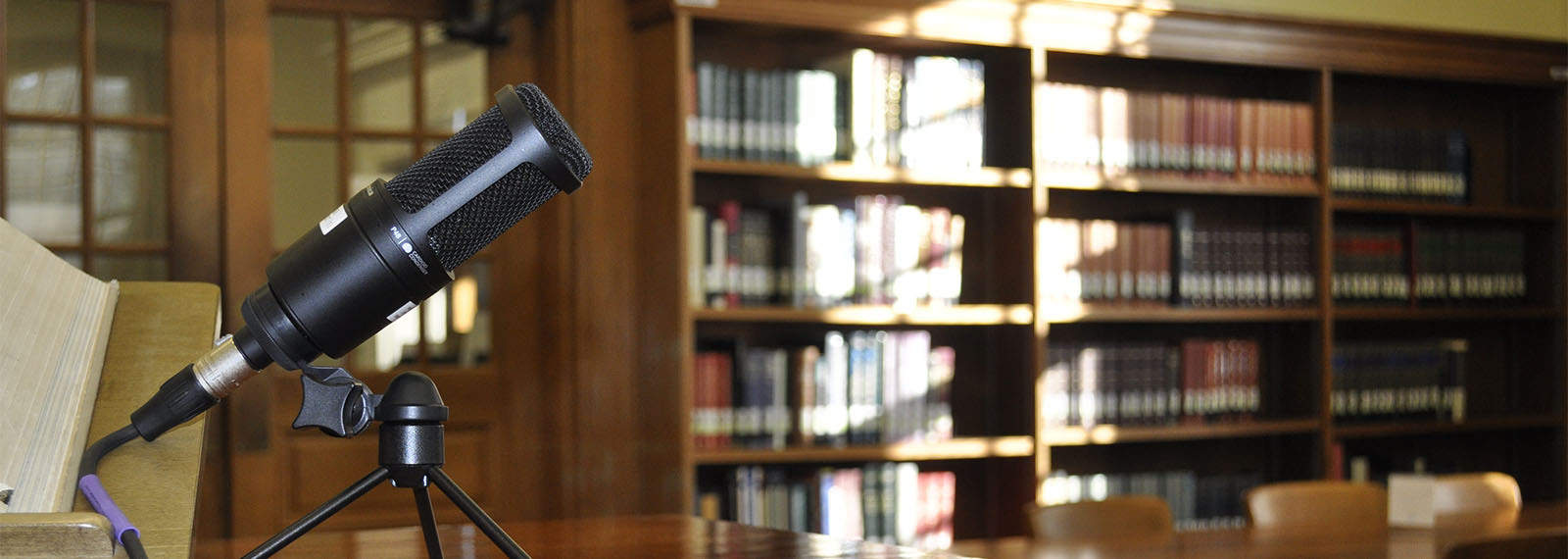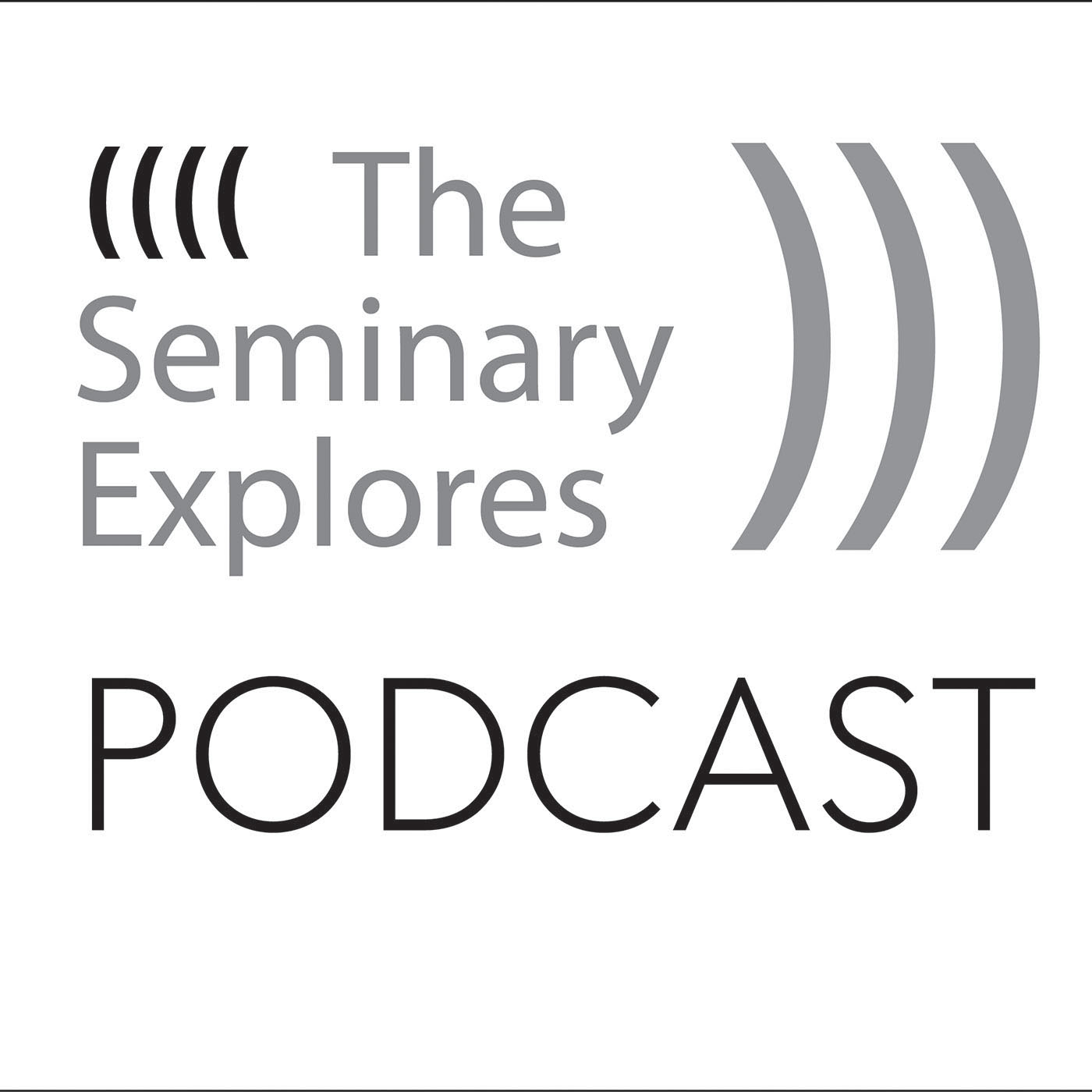
10.7K
Downloads
246
Episodes
An exploration of church and society produced by the United Lutheran Seminary with campuses in Gettysburg and Philadelphia, PA.
Episodes
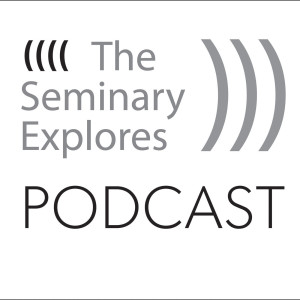
Monday Feb 12, 2024
Monday Feb 12, 2024
Lisa Erdman, Postdoctoral Scholar in the President’s Postdoctoral Fellowship Program at the Penn State College of Medicine, talks about her current teaching and the role of everyday objects in communication between patients and healthcare providers. Health humanities is an emerging, interdisciplinary field of study that examines how the arts and humanities can offer a deeper understanding of the illness experience and well-being in healthcare. An artist, educator, and researcher, Erdman holds a Doctorate of Arts from Aalto University in Helsinki, Finland. Her productions have received numerous awards, including funding from the Arts Council of Finland. She has participated in residencies at the Red Gate Gallery in Beijing, China, the Hungarian Multicultural Center in Budapest, and the Centre for Health Education Scholarship at the University British Columbia, Canada.
To learn more about the field of Health Humanities see the book, Health Humanities.


Monday Dec 18, 2023
The Emotional Voltage of Their Lives
Monday Dec 18, 2023
Monday Dec 18, 2023

Author Joseph Bathanti (LSU Press, Mercer University Press) details the writing program, Brothers and Sisters Like These, he and Dr. Bruce Kelly started at the Charles George Department of Veterans Affairs Medical Center in Asheville, North Carolina.
Bathanti is a creative writing mentor for Carlow University’s MFA program. He is Professor of English at Appalachian State University, serving as the McFarlane Family Distinguished Professor of Interdisciplinary Education, as an affiliate faculty appointment in Appalachian Studies & The Center for Judaic, Holocaust and Peace Studies, and as the Writer-in-Residence of Watauga Residential College. The author of many books including The Act of Contrition (short stories, 2023), he is a co-editor of The Anthology of Black Mountain College Poetry, which is forthcoming from University of North Carolina Press.
Joseph Bathanti grew up in Pittsburgh. He came to North Carolina in the mid-1970s as a VISTA volunteer to work with prison inmates. His degrees are from University of Pittsburgh and Warren Wilson College. He is a former poet laureate of North Carolina.
Watch the Brothers Like These film.

Tuesday Apr 11, 2023
Crash: Ann Bracken talks about her new Memoir on Overmedication and Recovery
Tuesday Apr 11, 2023
Tuesday Apr 11, 2023
Ann Bracken's book Crash: A Memoir of Overmedication and Recovery, explores mother-daughter experiences of mismanaged care for depression and chronic pain. A co-host for the Wilde Readings Poetry Series, Bracken is a contributing editor for Little Patuxent Review. Her poetry, essays, and interviews have appeared in numerous anthologies and journals. She is a correspondent for the Justice Arts Coalition, exchanging letters with incarcerated people to foster their use of the arts. Bracken holds a B.A. in Speech Pathology and Audiology from Towson University and an M.S.Ed. in Communication and Learning Disorders from Johns Hopkins University.


Monday Nov 21, 2022
Strong Medicine: The Essential Role of Story in Healthcare
Monday Nov 21, 2022
Monday Nov 21, 2022
Dr. Andre Lijoi, Associate Program Director of WellSpan York Hospital Family Medicine Program and Clinical Associate Professor for Penn State University School of Medicine joins Katy Giebenhain for a conversation about Narrative Medicine’s potential for clinicians and patients. A graduate of Ramapo College of NJ and Georgetown University School of Medicine, Lijoi did his residency and internship at University of Maryland Medical Center. He holds a CPA in Narrative Medicine from Columbia University.
Information on narrative medicine
https://www.nytimes.com/2021/02/25/well/live/narrative-medicine.html
https://www.mhe.cuimc.columbia.edu/division-narrative-medicine


Sunday Oct 09, 2022
Plot-Driven Medicine
Sunday Oct 09, 2022
Sunday Oct 09, 2022
Dr. Tahmeena Ali, a longitudinal family physician in British Columbia, Canada has always enjoyed writing and, in 2013, obtained a creative writing certificate from Simon Fraser University's Writing Studio. Writing and medicine merged for her when she discovered Rita Charon's work in narrative medicine and attended a narrative medicine workshop at Columbia University in 2017.
The current President-Elect of BC Family Doctors, Dr. Ali writes and presents on topics including trauma-informed practice. She was awarded the Family Physician of the Year by the College of Family Physicians of British Columbia in 2020 for her dedication to her community and her profession. Her most rewarding and challenging work is raising three teenagers alongside her husband of 26 years.


Monday Aug 02, 2021
What Love is About: Hospice Care at the End of Life
Monday Aug 02, 2021
Monday Aug 02, 2021
Dr. Leonard Hummel is a Chaplain Hospice at Allina Health Care in Ulm, MN and is also Professor Emeritus at United Lutheran Seminary. He shares with us the nature and importance of the hospice chaplain in the end-of-life process including how it is integrated into the healthcare system and each patients support and medical team. He also shares some of the more specific challenges of shepherding people through the end-of-life experience during the COVID-19 pandemic. He reminds us that the end-of-life is a universal experience, that while shared, is also unique for each individual.

Monday Aug 24, 2020
T1International: The Quest for Insulin Accessibility
Monday Aug 24, 2020
Monday Aug 24, 2020
Elizabeth Pfiester is the founder and director of the non-profit T1International, which is based in the UK, and is dedicated to using ethics and solidarity in its quest for more accessible insulin. The initiator of the grassroots campaign #insulin4all, it does not accept funding from pharmaceutical companies or any organization that would compromise its ability to advocate for insulin affordability and access.
Pfiester holds a master’s degree in International Development and Humanitarian Emergencies from The London School of Economics and Political Science. We caught up with Elizabeth during a busy August at T1International.
You can learn more about the insulin price crisis in the U.S. and how T1International advocates around the world are seeking change so that this essential medicine gets into the hands of all who need it. https://www.t1international.com/

Monday May 04, 2020
COVID-19 and the Hospital Chaplain: Spiritual Care During a Pandemic
Monday May 04, 2020
Monday May 04, 2020
Rev. Peter Kuhn, Director of Spiritual Care and Education, WellSpan Health joins The Seminary Explores for a conversation about spiritual care in some of South Central Pennsylvania’s hospitals. Like all hospital departments right now they are rapidly adapting to how they provide care and education in changing circumstances. Kuhn is an ACPE Clinical Educator and a Board Certified Chaplain. He studied Theology at the University of Heidelberg in Germany. His Supervisor training is from Wake Forest University Baptist Medical Center in Winston-Salem, N.C.

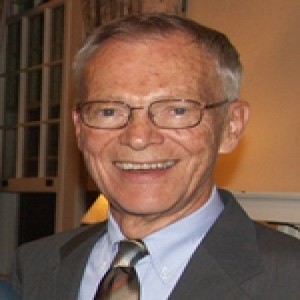
Monday May 06, 2019
Restoring Health in the World, One Disease at a Time
Monday May 06, 2019
Monday May 06, 2019
Kate Braband, Senior Associate Director of Program Development, Carter Center, Atlanta, Georgia describes the success that the Carter Center, initiated thirty years ago by President and Mrs. Jimmy Carter, has had in controlling guinea worm, one of the more painful and debilitating of the Neglected Tropical Diseases (WTD) in Central Africa. Not long ago, cases numbered in the thousands; today in the twenties. Guinea worm is controlled, not by vaccinations, but by changes in behavior, especially drinking filtered water. Education and supervision are largely in the hands of the locals. Other projects by the Carter Center derive from their mission of building hope, restoring health, and fighting for peace. To achieve these goals, the Center enlists national governments, the United Nations, and international corporations.
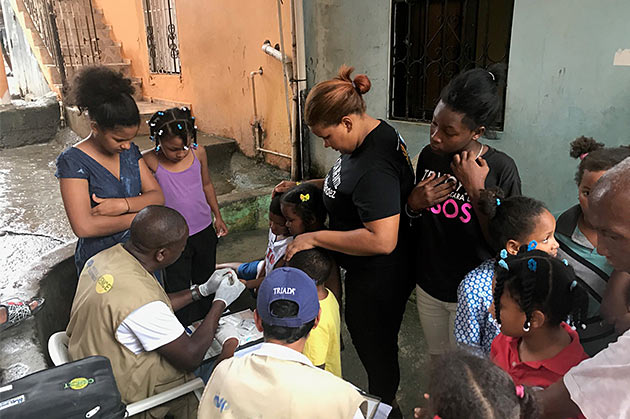
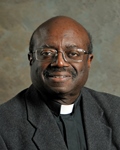
Monday May 07, 2018
Senior Citizen Living: Issues, Concerns, and Possibilities
Monday May 07, 2018
Monday May 07, 2018
Angela Dohrman, Vice-President and Chief Operating Officer, SpiriTrust Lutheran, discussed providing quality care for senior citizens. The discussion included: definitions of senior care, the difficulties in sustaining quality care, the recruitment of personnel, Affordable Health Care act, regulations for senior care facilities, the calling or vocation of SpiriTrust personnel.
